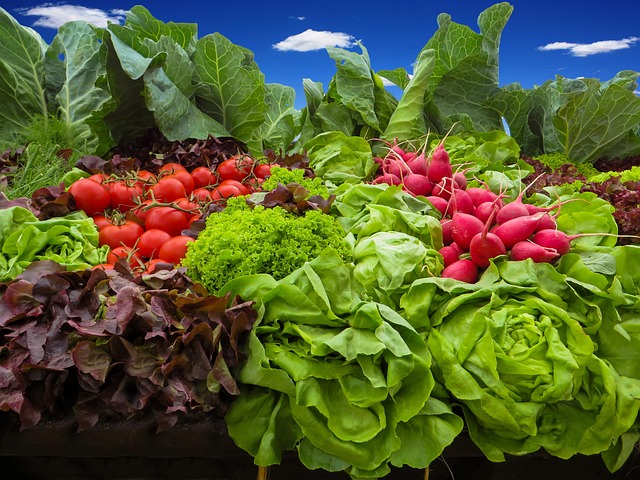Biodynamic Farming for Growth

Biodynamic farming is a holistic approach to agriculture that goes beyond organic farming, emphasizing the interconnectedness of soil, plants, animals, and cosmic rhythms. Developed in the early 20th century by Dr. Rudolf Steiner, this method integrates ecological, ethical, and spiritual principles to create a self-sustaining and resilient farm ecosystem. Unlike conventional farming, which often relies heavily on chemical inputs and monocultures, biodynamic farming focuses on nurturing the natural fertility of the soil and maintaining ecological balance.
At the core of biodynamic farming is the use of compost, herbal preparations, and natural fertilizers that enrich the soil and stimulate healthy plant growth. Crop rotation, companion planting, and cover cropping are employed to enhance biodiversity and prevent pest infestations naturally. Livestock plays a key role in this system, providing manure for fertilization and contributing to the farm’s nutrient cycles. Farmers also align planting and harvesting activities with lunar and planetary cycles, believing that cosmic rhythms influence plant development and vitality.
One of the most significant advantages of biodynamic farming is its focus on sustainability. By minimizing external inputs and relying on natural processes, farms reduce their environmental footprint, preserve biodiversity, and produce high-quality, nutrient-dense crops. Additionally, this approach encourages long-term soil health, ensuring that future generations can continue farming the land effectively. Biodynamic practices also promote ethical and mindful stewardship of the environment, emphasizing the farmer’s role as a caretaker rather than just a producer.
In a world increasingly concerned with climate change, soil degradation, and food security, biodynamic farming offers a model for sustainable growth that balances productivity with ecological responsibility. Farmers adopting these techniques not only contribute to environmental conservation but also enhance the resilience and profitability of their agricultural operations.
Core Techniques of Biodynamic Farming
Biodynamic farming involves a set of time-tested techniques that work together to build healthy soils, increase biodiversity, and create a self-sufficient farming system. These practices make the farm an integrated, living organism where every element supports the other.
- Soil Enrichment through Natural Preparations
Healthy soil is the foundation of biodynamic farming. Farmers use special compost preparations made from herbs, minerals, and manure to stimulate soil activity and enhance nutrient availability. These preparations improve the structure and fertility of the soil while encouraging beneficial microorganisms to thrive. Instead of relying on chemical fertilizers, biodynamic farmers build living, nutrient-rich soils naturally.
- Composting and Organic Matter Management
Composting is a central element of biodynamic practices. Organic waste from crops, livestock manure, and plant residues are composted with specific biodynamic preparations to create a powerful natural fertilizer. This compost enriches the soil, boosts microbial activity, and improves moisture retention, helping plants grow stronger and more resilient to stress and disease.
- Crop Rotation and Biodiversity
Biodynamic farms prioritize crop rotation to prevent soil exhaustion and pest buildup. By rotating crops and including legumes, green manures, and cover crops, farmers maintain soil fertility and minimize the risk of diseases. Companion planting is also used to encourage beneficial interactions between different species, enhancing the ecosystem’s balance.
- Integration of Livestock
Animals play a vital role in biodynamic systems. Livestock provides natural manure for composting and contributes to the nutrient cycle of the farm. Their presence also supports a diverse ecosystem, where grazing and movement help aerate the soil and control weeds.
- Cosmic Rhythms and Planting Calendars
One of the unique aspects of biodynamic farming is aligning agricultural activities with lunar and planetary cycles. Farmers use biodynamic calendars to decide the best times for planting, pruning, and harvesting. This practice is believed to enhance crop vitality and yield.
- Minimal External Inputs
Biodynamic farms strive to be self-sustaining. Instead of purchasing synthetic inputs, they generate most resources on-site—compost, seeds, and animal feed—creating a closed-loop system that reduces costs and environmental impact.
Conclusion
Biodynamic farming is more than just an agricultural technique—it is a philosophy that respects and works with nature. By focusing on soil health, biodiversity, composting, and cosmic rhythms, this method promotes a closed-loop farming system that is both environmentally and economically sustainable. Unlike conventional farming, which often depletes natural resources, biodynamic practices regenerate the land, making it more fertile and resilient over time.
Farmers who adopt biodynamic methods not only produce healthier, chemical-free crops but also contribute to restoring ecological balance. The use of natural preparations, crop rotation, and livestock integration ensures that the soil remains alive and productive for generations. This approach reduces dependency on external inputs, cuts down farming costs, and enhances long-term farm stability.
In today’s world, where climate change and soil degradation pose serious threats to food security, biodynamic farming offers a promising path forward. It bridges the gap between traditional knowledge and modern sustainability goals, empowering farmers to grow more responsibly. By embracing biodynamic techniques, agriculture can move towards a greener, healthier, and more resilient future — benefiting farmers, consumers and the planet alike.
Take the Next Step Toward Sustainable Farming
Empower your farm with innovative and eco-friendly biodynamic farming solutions that enhance soil fertility, boost crop yield, and protect the environment. At Indochem Agrovet, we provide high-quality, natural agricultural products and expert guidance to help farmers adopt sustainable and profitable practices.
Whether you’re just beginning your journey with biodynamic farming or looking to enhance your current methods, our team is here to support you every step of the way. Together, we can build a greener and more resilient future for agriculture.
Contact us today: +91 9830 720311 / 83369-77770
Mumbai Address:
Parewala House No.4 Vakola,
Santacruz (East), Mumbai 400055
Kolkata Address:
Block – DD, House no-197, 1st Floor,
Street no-295, Action Area-1, New Town,
Kolkata, West Bengal 700156
Visit: https://indochemagrovet.in/
Grow sustainably. Harvest abundantly.

